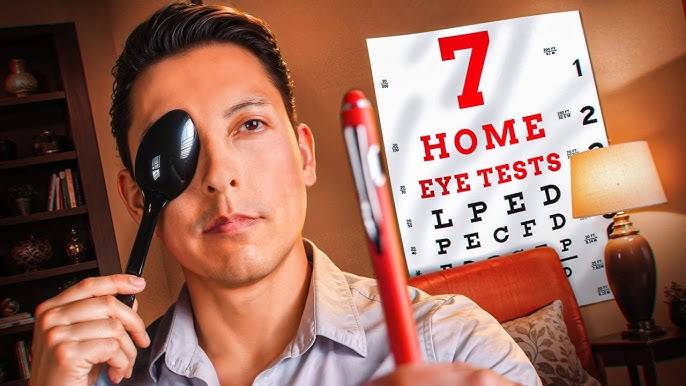You went out last night, and now you’re exerting every last ounce of effort clawing your way to the Pedialyte on your nightstand. Of course it’s just out of arm’s reach, and your severe dehydration makes you feel like this is a cruel joke. After finally getting ahold of your drink and glugging it down, you feel like a weight has lifted and you can finally (almost) move again.
Of course, this can also happen not only after a long night out. Your body can crave fluids and electrolytes after a rigorous sweat sesh, too much time outside on a blisteringly hot summer day, or when you're under the weather (or, really, for no particular reason at all). However, if you've ever wondered how to decipher whether you're simply parched or something more—namely, an electrolyte imbalance—is at play, you've come to the right place.
Read Also: Is Building a Real-Time Blockchain Infrastructure Possible?
We spoke with a doctor to get the full scoop on the under-the-radar ways your body is telling you that you're not getting enough electrolytes, which can easily be mistaken as just pure dehydration. Spoiler alert: The two often go hand in hand. He helped define the key differences between the two, how much electrolytes you should consume daily, and the best way to do so—all essential intel for staying appropriately hydrated, especially as you age.
What’s the difference between dehydration and an electrolyte imbalance?
Although dehydration and an electrolyte imbalance share several similar characteristics (making it exceptionally easy to conflate or confuse the two), there are a few key markers to help you decipher which one you're dealing with. For starters, electrolytes are minerals in your body that have an electric charge, which help balance the amount of water in your body, balance pH levels, manage cell health, and regulate multiple bodily systems. Meanwhile, dehydration is a condition caused by losing too much fluid from the body.
According to Oran Mehrnia, DO, dehydration and an electrolyte imbalance can present similar symptoms but have a few specific characteristics that set them apart. “A major difference to differentiate the two would be that dehydration is a problem purely to do with too little water in the absence of an imbalance of electrolytes," Dr. Mehrnia says. "That being said, this is rare, as electrolytes largely flow with water, and severe dehydration almost always causes electrolyte derangement.” In other words, dehydration and electrolyte imbalance go hand in hand.
However, Dr. Mehrnia notes that even though electrolyte disorders are often caused by dehydration, they can also occur in states of too much water. So, how can you tell if an electrolyte imbalance is the real culprit, you may ask? He recommends closely examining your symptoms and levels of specific minerals to make the correct diagnosis.
What are the common signs of dehydration vs. an electrolyte imbalance?
Common signs that you're dealing with dehydration include headaches, brain fog or confusion, fatigue, mood swings, lightheadedness, and dizziness.
"Depending on the level of dehydration, it can take up to 36 hours for symptoms to improve," Mahmud Kara, MD, previously told Well+Good. So if you're dealing with mild symptoms, drinking water will certainly help you stay hydrated. However, if you have moderate to severe symptoms, it's likely that your dehydration has led to an electrolyte imbalance as well. This will require a hydrating beverage fortified with electrolyte-rich minerals.
“The signs of electrolyte imbalance include irregular heart rhythm, fatigue, malaise, altered mental status, headache, dizziness, and muscle spasms,” Dr. Mehrnia says. Meanwhile, dehydration can also include these symptoms as well as low blood pressure.
"The most common types of electrolyte imbalance include hyper- and hypo- states of minerals, including sodium, potassium, calcium, and magnesium," Dr. Mehrnia says. These imbalances, he adds, are typically triggered by persistent vomiting or diarrhea, but they may also be linked to kidney or heart failure, taking certain medications, or changing your dietary habits.
Dr. Mehrnia recommends seeking medical attention immediately if you are experiencing these symptoms (especially if they persist despite adequate hydration of electrolyte-rich fluids). "After all, in rare instances and in certain disease states, severe imbalances can occur. Some can be fatal; for example, hyperkalemia and hypokalemia [too much or too little potassium in your bloodstream] can cause cardiac arrest through irregular heart rhythms. This is rarely due to dietary intake and almost always happens in the presence of other medical issues. As much, in the majority of healthy adults, the GI tract and kidneys naturally regulate fluid and electrolyte balance together to maintain equilibrium,” Dr. Mehrnia says.
How to replenish electrolytes
“The most efficient and cost-effective way to replenish electrolytes is with enriched fluids by mouth. Electrolytes follow water and are eventually absorbed into the blood,” Dr. Mehrnia says. He says drinks like Gatorade, Nuun, BodyArmour, Powerade, Liquid I.V., Pedialyte, and Electrolit offer adequate electrolytes to help you stay balanced and well-hydrated. (Be sure to check out the best and worst beverages for hydration here.)




